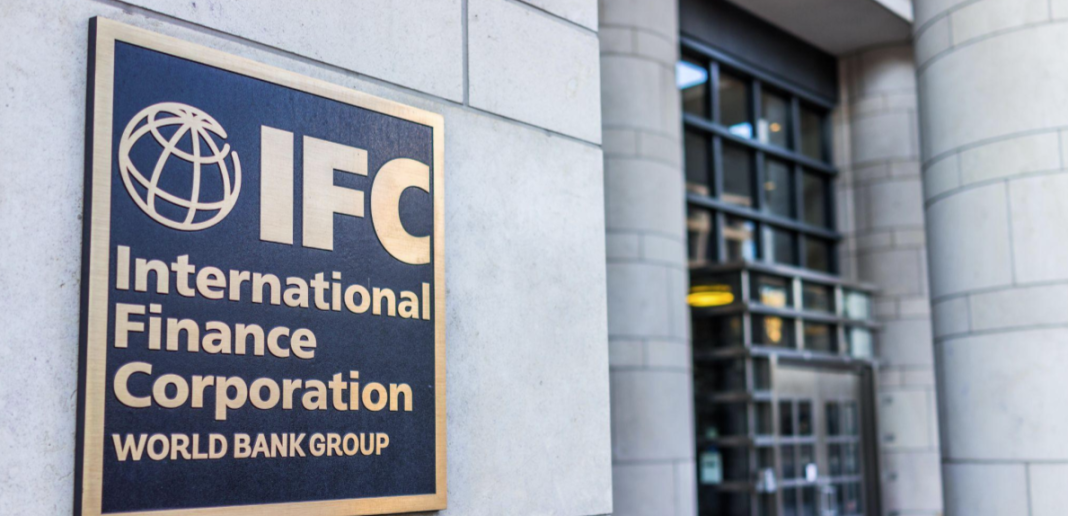The International Finance Corporation’s (IFC) Asia Pacific Vice President, Riccardo Puliti, recently expressed the IFC’s readiness to increase investments in Sri Lanka, buoyed by an improving economic outlook.
This optimism follows the IFC’s announcement of a $10 million equity investment in Sunshine Holdings’ healthcare subsidiary to boost pharmaceutical manufacturing and retail. This marks IFC’s second investment in the conglomerate, the first being a $5 million investment to diversify its business portfolio. It is also one of the few equity investments in recent years, with previous ones including PickMe, Cargills Ceylon Plc, and SDB Bank. IFC’s major equity stake is in Commercial Bank Plc, holding a 14.45% share.
IFC’s active financial support portfolio for Sri Lanka stands at around $400 million, and Puliti indicated a desire to expand this further. “I would lie to you if I say that I’m satisfied (with the $400 million) because I’m not. IFC would be very happy to increase all the possible financial support we can give to the private sector in the country,” he told the Daily FT in an exclusive interview.
Puliti highlighted the planned $10 million investment in Sunshine Healthcare, noting the higher financial risk associated with equity compared to lending. “It is easier to lend than to provide equity. I think that it is a good early sign of how everyone feels more comfortable with Sri Lanka’s positive economic momentum,” Puliti emphasized.
“We are ready to invest our equity and hope that many other international investors, public or private, will follow suit. For us, the demonstration effect of investing in equity is quite important,” he added.
“Sri Lanka deserves more funding and we have a strong pipeline for the future. We could increase our investment quickly if conditions are favorable. We would be happy to be a major investor in finance here if the conditions are right. Given Sri Lanka’s potential, we could do more. We really want to be part of Sri Lanka’s transformation,” stressed Puliti.
Puliti noted that while stabilizing the economy is crucial, generating growth post-stabilization is challenging. “The population of any country, including Sri Lanka, wants to see a future of hope and a positive life. It is essential to provide a medium-term vision for Sri Lanka where job creation, low inflation, and a return to robust trade and tourism are achieved,” he reiterated.
The IFC Vice President also acknowledged the necessity of continuing reforms to ensure stability, praising efforts in the crucial energy and banking sectors. He commended the progress in restructuring state-owned enterprises (SOEs), with IFC advising the government on transactions involving SriLankan Airlines and Sri Lanka Telecom.
To attract Foreign Direct Investments (FDIs), Puliti emphasized the importance of opening up further and maintaining good trading relationships. “A transparent, open, and competitive bidding environment is key to attracting FDI and significant investors,” he said.
Puliti highlighted Sri Lanka’s strategic geographic location and proximity to India, which is growing at 7% per year, as significant advantages. He identified sectors with high growth potential, including export manufacturing (apparel and agriculture, especially cinnamon and tea), renewable energy, tourism, digitization, and IT.
He recognized the dynamic and energetic nature of Sri Lanka’s business community, noting that private sector investments are crucial. “I believe the private sector has a major role to play in every economy,” he emphasized.
The IFC has a robust advisory program in Sri Lanka covering climate financing, supply chain financing, SME support, financial inclusion, tech entrepreneurship, and improving the competitiveness of the agricultural sector, focusing on high-value products such as cinnamon and coconut.
In FY23, IFC provided Cross Currency Swap lines totaling $100 million to three private banks, injecting essential US Dollar liquidity to support trade and bank liquidity, ensuring access to essential items. In June 2022, IFC invested $150 million in Dialog Axiata to support expansion, seeing potential in the tech and digital space. IFC also partnered with the Sri Lanka Association of Software and Service Companies to foster a thriving tech ecosystem.
To help Sri Lankan businesses continue operations and preserve jobs, IFC provided a $25 million loan to Nations Trust Bank (NTB), funded $175 million in John Keells Holding (JKH) to expand its supermarket chain and refurbish hotel properties, and provided a $50 million loan to Commercial Bank of Ceylon to support SMEs.
IFC collaborates closely with agribusiness and manufacturing sectors, including garments, coconut, manufactured rubber, and spices. Since 2022, IFC has been working with industry stakeholders to better position and promote high-quality exports of Ceylon Cinnamon.
In May 2024, the IFC initiated a program with the Central Bank of Sri Lanka and other partners to facilitate export-ready SMEs through targeted programs and regulatory improvements, including a focus on greening SMEs to increase export revenue.
IFC also partnered with Citizens Development Business Finance PLC (CDB) to expand climate finance products and collaborated with Commercial Bank to develop a Supply Chain Financing strategy to lend more to SMEs.
During his visit, Puliti met with President Ranil Wickremesinghe, Power and Energy Minister Kanchana Wijesekera, Central Bank Governor Dr. Nandalal Weerasinghe, private sector representatives, and development partners.
With over five decades of operations in Sri Lanka, IFC’s efforts focus on supporting innovation for growth, enabling sustainable infrastructure, and deepening social and financial inclusion. Since the pandemic, IFC has invested over $800 million in Sri Lanka to sustain businesses and preserve jobs
















